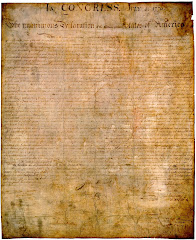 Fifty years ago, Herbert Matthews of The New York Times interviewed a rebel-with-a-cause most people thought was dead. Matthews’ scoop in the tangled jungle of Cuba’s Sierra Maestra proved the man was alive. His name (which in its entirety was but four syllables) would soon come to be known the world over. To his followers, the first two syllables would suffice: “Fi-del.” Castro’s quest to topple Cuba’s strongman, Fulgencio Batista, captured the imagination of millions. Victory, secured after only two years of urban insurrection and guerrilla warfare, catapulted the 32-year-old former lawyer and son of a wealthy landowner into the ranks of revolutionary stardom. After the catastrophes and crimes that had befallen the 1917 Bolshevik project, Castro seemed at first to herald something new. His was the first socialist revolution, after all, to have been made without the central participation of the Communist Party (and even, it appeared, against the party). (Six years before, in the aftermath of Castro’s failed attack on the military barracks of Moncada in Santiago de Cuba on July 26, 1953, its apparatchiks had denounced him as a “putschist” and an “adventurist.") All previous socialist revolutionaries had seemed grimly puritanical; by contrast, Castro’s barbudos appeared almost to be bohemians with guns. Democracy and radical reform were poised to replace dictatorship and social misery.
Fifty years ago, Herbert Matthews of The New York Times interviewed a rebel-with-a-cause most people thought was dead. Matthews’ scoop in the tangled jungle of Cuba’s Sierra Maestra proved the man was alive. His name (which in its entirety was but four syllables) would soon come to be known the world over. To his followers, the first two syllables would suffice: “Fi-del.” Castro’s quest to topple Cuba’s strongman, Fulgencio Batista, captured the imagination of millions. Victory, secured after only two years of urban insurrection and guerrilla warfare, catapulted the 32-year-old former lawyer and son of a wealthy landowner into the ranks of revolutionary stardom. After the catastrophes and crimes that had befallen the 1917 Bolshevik project, Castro seemed at first to herald something new. His was the first socialist revolution, after all, to have been made without the central participation of the Communist Party (and even, it appeared, against the party). (Six years before, in the aftermath of Castro’s failed attack on the military barracks of Moncada in Santiago de Cuba on July 26, 1953, its apparatchiks had denounced him as a “putschist” and an “adventurist.") All previous socialist revolutionaries had seemed grimly puritanical; by contrast, Castro’s barbudos appeared almost to be bohemians with guns. Democracy and radical reform were poised to replace dictatorship and social misery.Read more...





